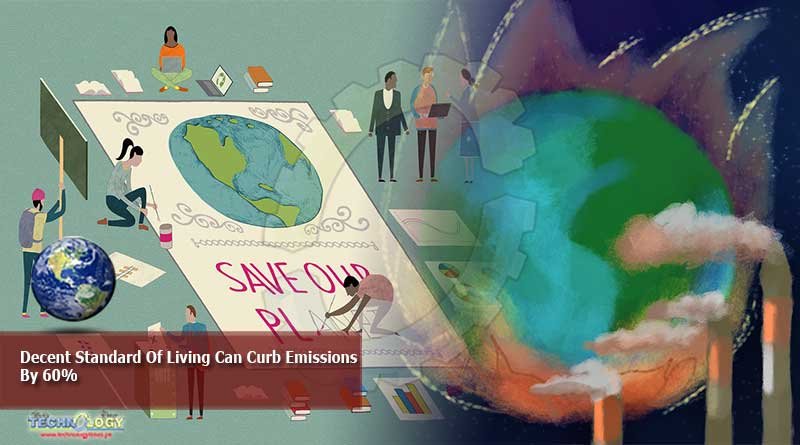Human population of approximately 10 billion in 2050 could live on the planet at a decent standard of living with 40 percent of today’s emissions.

A recent study conducted by the Living Well Within Limits project at the University of Leeds — to which Yale School of the Environment professor Narasimha Rao contributed heavily — found that the projected human population of approximately 10 billion in 2050 could live on the planet at a decent standard of living with 40 percent of today’s emissions.
Rao, who specializes in energy systems at the School of the Environment, is a co-author of the paper, which was published in the journal Global Environmental Change this month. The study investigated how much global energy use is required to maintain a decent standard of living for the projected global population of 9.7 billion people in 2050, and found that lowering energy consumption by 60 percent could accommodate such a population. This research was based on previous work conducted by Rao that was published in Nature Energy, which described the material conditions required for adequate living conditions.
“The finding was that the amount of energy that we would need, not only to eradicate poverty, but for decent living across the world even in industrialized countries, is about a tenth of the current energy use in the U.S.,” Rao said. “The major implications of that is that bringing people out of poverty is not a threat to climate change. People are always concerned about growth in developing countries, and this is a really important finding that growth will happen in developing countries, but it’s not going to be driven by basic well-being, it’s going to be driven by affluence.”
Rao’s previous work looked specifically at energy consumption requirements in developing countries, using India, Brazil and South Africa as case studies. He analyzed a basket of goods and services that provide a decent standard of living. These conditions included a modest amount of space in each household, with about 300 square feet plus an additional 100 square feet per person, as well as basic amenities such as clean water, toilet and sanitation facilities, a refrigerator, nutritious food and basic appliances.
The LiLi project’s recent study built upon Rao’s model and proved that if everyone in 2050 adopted this metric of modest living, emissions would be cut to only 40% of current global energy consumption. Humans would therefore have a reduced impact on climate change.
Joel Millward-Hopkins, a graduate student at the University of Leeds, and others were involved in the LiLi project, which is led by professor Julia Steinberger at the University of Leeds. The researchers translated the living standards described by Rao’s work into energy requirements by first determining the activity levels appropriate to each country, such as how much transport is needed given diverse population densities or how many schools are needed given the expected age structure of the 2050 population.
They then investigated the most efficient technologies that could support these living standards. Finally, they integrated these activity levels and energy intensities and multiplied them by the 2050 population to obtain global energy use.
“The most important changes I see in the world we imagined are consumption as sufficiency levels –– enough for a decent life but no more –– and a flattening of global and national inequalities,” Millward-Hopkins wrote in an email to the News. “Indirectly, it would also be a world requiring far, far less human labour, as the quantity of stuff required would be much less than today, not to mention that in the coming decades automation is likely to become widespread.”
He explained that the policy implications of this work should be targeted at lowering inequality between countries, as well as reducing global consumption of luxury goods and having lower working hours.
Diego Angel Hakim, a graduate student working under Rao at the Yale School of the Environment, believes that the task of reducing energy consumption has a lot to do with redistributing it to population groups that need it the most. He also emphasized that this could help bring people out of poverty.
“I think the implications of this research are truly far reaching: it refutes the argument that human development will cause the bulk of greenhouse gas emissions that the world won’t be able to abate by showing that reaching ‘decent living’ for all the population can be done under a carbon constrained world,” Hakim wrote in an email to the News.
Originally published at yale daily news
